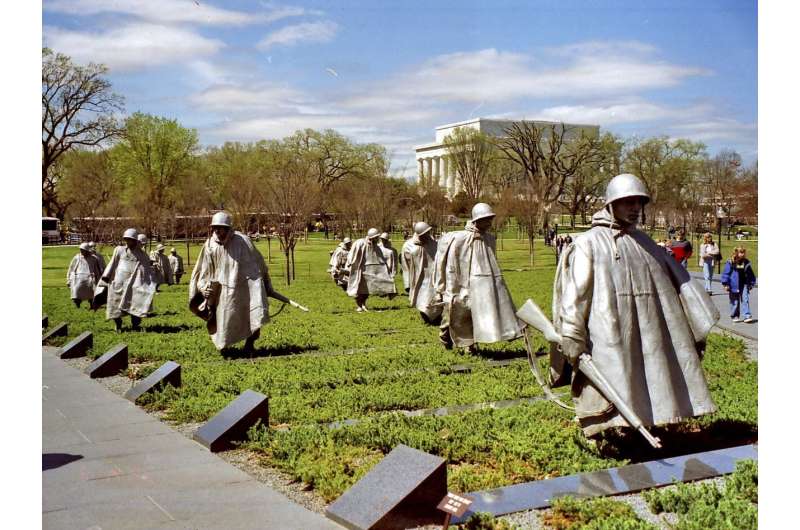The Korean War Veterans Memorial in Washington, D.C. Credit: 123rf.com
The landmark Supreme Court case Plessy v. Ferguson upheld the doctrine of "separate but equal," but for many decades after that segregation was enforced in virtually all aspects of life, including the military.
"Segregation, Integration, and Death: Evidence from the Korean War," a new study from Rice University and the University of Nebraska-Lincoln (UNL), examines whether segregation or integration led to unequal fatality rates on the battlefield.
Researchers Connor Huff, an assistant professor of political science at Rice, and Robert Schub, an assistant professor of political science at UNL, studied records of soldiers' deaths during the first half of the Korean War, when troops were segregated, versus the second half, when troops were integrated. They collected data on racial composition and size of military units, and the number of deaths of white and Black soldiers.
The study found that Black and white soldiers' fatality rates were similar, regardless of whether they were serving in segregated or integrated units. Historical details of the Korean War help explain the surprising lack of racial discrepancies.
"Throughout much of the Korean War, the U.S. military was underprepared and undermanned," Huff said. "Military commanders were putting soldiers where they were most necessary, and the need for battlefield contributions seems to have overridden any of the discriminatory behavior that could have led to different fatality rates between white and Black soldiers."
Huff said he and Schub "did notice more variation in deaths by race over a given time period. For example, one month there might be higher fatality rates among white soldiers, because white troops went into battle and sustained heavy losses, and the next month the same thing might happen to Black soldiers. However, this variability disappeared once troops were integrated."
The study will appear in an upcoming edition of the journal International Organization.
More information: Connor Huff et al. Segregation, Integration, and Death: Evidence from the Korean War, International Organization (2021). DOI: 10.1017/S002081832100014X
Provided by Rice University























